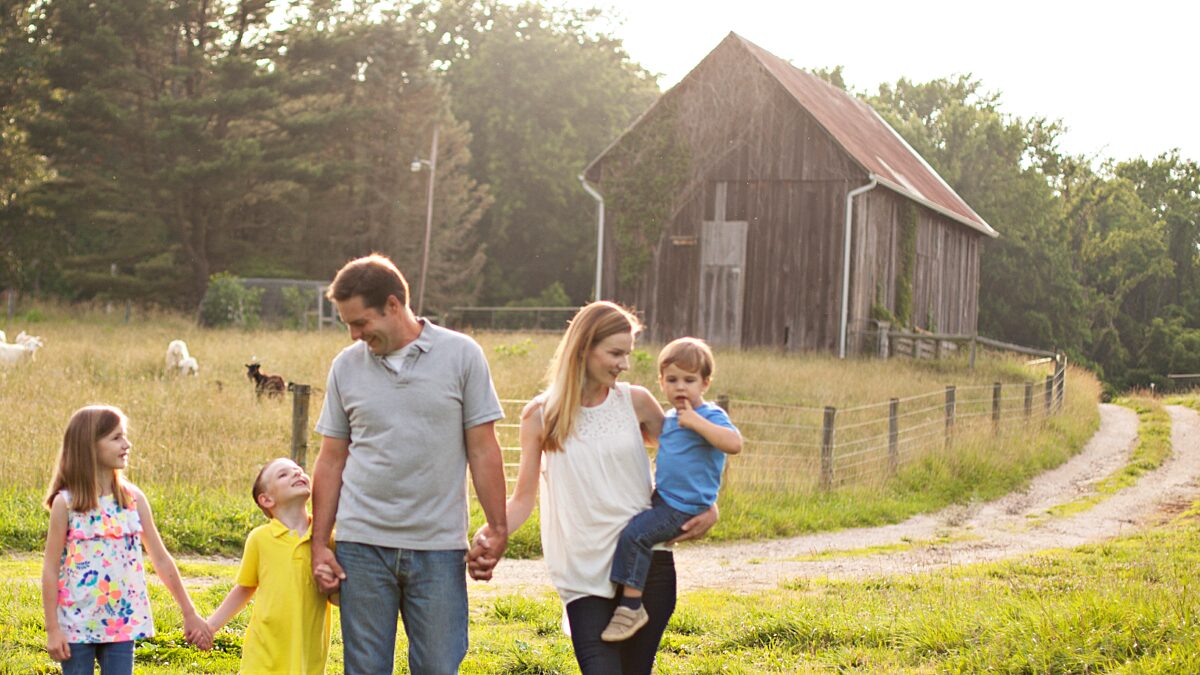Why I’m Sharing My Story During Mental Health Month
TOPICS
Mental Health MonthGuest Author
Special Contributor to FB.org

photo credit: Jamie Tiralla, Used with Permission
Guest Author
Special Contributor to FB.org
By Sara Neagu-Reed
“Rise and shine, it’s a new day” is a mantra I try to tell myself to help me get out of bed. Half the time it works, other days it’s a bit more of a struggle. Some may read that and think, “She’s being lazy, she wants to sleep in.” But typically, I’ve been wide awake since 5:30 a.m. at that point and the reason I’m having trouble getting out of bed has nothing to do with my physical health – it’s all mental. I live with depression.
I always felt the need to suppress my diagnosis and struggles. It was instilled in me from a young age that talking about mental health showed weakness.
That changed about a year ago when I met a farmer from the Central Valley who shared his story with me – the anxiety he came to terms with and the lack of resources in rural America to assist farmers like him in combating these mental health issues on a daily basis.
Mental health in rural America should be a focal point and not a secondary issue.
I realized that by telling my story, I could contribute to the creation of a safe space for members of our farming community to feel vulnerable and understand that it is OK to not be OK. We are all in this together, and through our advocacy efforts, we can fill the gaps in telehealth, access to therapists and medication.
Mental health in rural America should be a focal point and not a secondary issue. Recognizing this, California Farm Bureau held a breakout session at our virtual annual convention on the topic. The panel included two farmers – one from Illinois and one from California, who shared their personal experiences with farm-related stress and how they have found ways to combat it. We were also joined by an American Farm Bureau staffer who discussed overall industry efforts, including the Farm State of Mind campaign that has helped elevate the issue at the national level.
From a policy angle, Congress should continue stepping up to the plate by promoting more policies that provide funding and resources to rural communities, as well as telehealth. More than 60% of rural Americans live in areas where there are little to no mental health professionals, and more than 90% of psychologists and psychiatrists work in metropolitan areas. With those statistics laid out in front of us, it becomes quite clear that we need better access to telehealth resources and appointments.
We saw some progress on our mental health policy requests last year with the passage of a Farm Bureau-supported measure designed to help farmers and ranchers respond to stress and decrease the stigma associated with mental health care in rural communities. The Seeding Rural Resilience Act was included in each chamber’s version of the National Defense Authorization Act.
The legislation would create three initiatives to promote mental wellness and mental health awareness in rural America:
- A farmer-facing employee training program that requires USDA to provide voluntary stress management training to employees at the Farm Service Agency, Risk Management Agency and National Resources Conservation Service.
- A partnership between the Department of Health and Human Services and USDA to create a $3 million PSA to increase public awareness of farm and ranch stress and destigmatize mental health care in rural communities.
- Collaboration among state, local and non-governmental stakeholders, led by the secretary of agriculture, to determine best practices for responding to farm and ranch mental stress.
The timing to receive this sort of assistance is crucial, but once again, this is a two-pronged approach. We may have the programs set up to assist our nation’s producers, but without removing the stigma associated with mental health, many farmers may not be willing to participate and utilize available resources. That is why we need to continue talking about this, normalizing the conversation and sharing about the direct link between physical and mental health.
May is Mental Health Month, which presents us with another opportunity to reach out to those around us and share our story, while also finding more resources and options for our farming communities when it comes to mental health. Please join us in our efforts this month by visiting the Farm State of Mind website at http://farmstateofmind.org/, where you can find a directory of stress and mental health resources, treatment locators, tips for helping someone in emotional pain, ways to start a conversation, links to register for free, online farm stress training and additional resources for managing stress, anxiety or depression.
Sara Neagu-Reed is associate director, federal policy at the California Farm Bureau.